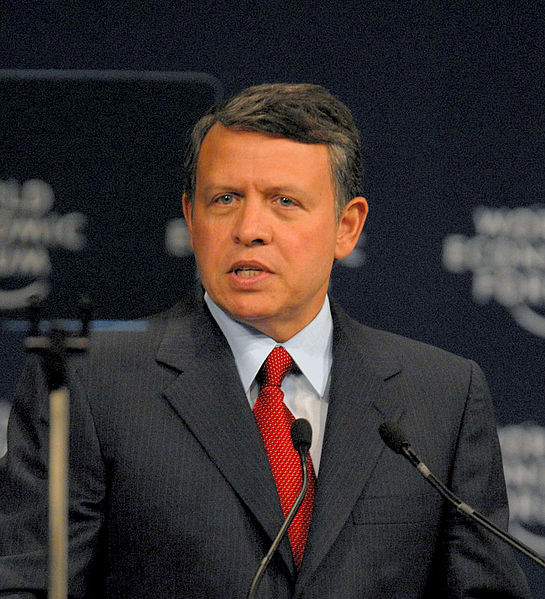Is Jordan Next?
Despite all the chatter, there are reasons to believe it isn’t, for now.
Last week, Jordanians went to the polls to participate in undeniably flawed elections. An electoral system that heavily favored the pro-monarchy constituencies voted in a parliament that has reinforced King Abdullah’s rule, and has marginalized the opposition. Anticipating this farce, the two largest opposition parties, al-Hirak, and the Islamic Action Front (Jordan’s branch of the Muslim Brotherhood) boycotted the elections in an effort to undermine the legitimacy of the incoming government. Few executive powers have been granted to the parliament, and the reported 56.5% turnout is estimated to be closer to 40%. While some international observers highly regard the election’s conduct, widespread cases of fraud and vote buying have still been documented. The democratically inadequate electoral law and its disproportionate representation still remain as fundamental issues, and the prospects for immediate and sweeping reform are dubious at best. Since the outburst of uprisings around the region but two year ago, the King has reshuffled his cabinet a number of times, and has proposed modest reforms to quell frequent, but largely unthreatening protests. But few substantial changes have been implemented, and analysts have started to speculate that Jordan is about to boil over.
Yes, there are reasons to believe that the monarchy is teetering on a precipice. With hundreds of thousands of Syrian refugees streaming into its borders, a number of economic ills, a growing protest movement, and public outrage about rampant corruption, this Arab monarchy—incapable of bribing its population—has suddenly found itself on a patch of quick sand.
But for the time being, there’s no serious reason to believe the Jordanian state stands in the crosshairs of revolution.
Most fundamentally, King Abdullah is considered a legitimate and benevolent ruler. In this way, the Jordanian sovereigns more closely resembles the al-Saud monarchs than the al-Assad presidents. The Hashemite family has ruled Jordan for as long as “Jordan” has existed. Most Jordanians consider the Hashemites their rightful rulers. This is why the opposition has yet to call for an overthrow of the monarchy. It has focused on how to change the existing structure to more democratically represent the Jordanian people—not on how to replace it. The monarchy’s bureaucratic and state institutions run deep through society. Abdullah is the glue that holds together the patchwork of ethnic and social division within Jordan, the guarantor of state security, and the face of the nation. Jordanians don’t want a revolution, but an evolution of the state to more effectively address their grievances and better their livelihood.
The nature of the opposition movement then implicitly recognizes the essential character of the Jordanian state. There is a light at the end of the tunnel for the monarchy so long as it can reform itself and state policies to appease the people. King Abdullah’s power is not fundamentally threatened. He in fact holds the power to satisfy his subjects. This includes curbing public corruption, instituting more political reform, and working to cure the country’s budget deficit and economic issues. “Bread” has become an enduring symbol of the Arab uprisings. If the Jordanian monarch can work to put bread on his citizens’ tables, he’ll have already won half the battle. And if he can’t or has difficulty doing so, we can be sure to expect political and economic support from his international allies, the United States and Saudi Arabia.
Not to mention, “revolution” appears to be an increasingly unpleasant alternative. With social and political turmoil still raging in Egypt, thousands dying in Syria, continued division in Yemen, and an international conflict in Mali sprung in large part from Libya’s “spring,” the promises of popular uprisings are no longer so rosy. Jordanians value their stability, and the threat of revolutionary instability looms large. Jordanians have seen first hand what revolution has brought to Syrians: displacement and hardship—not the kind of bread Jordanians crave.
Nonetheless, it is important to recognize the significant challenges King Abdullah faces. By no means does he face a secure future. The Arab uprisings have been full of surprises, and the monarchy’s condition can change on a dime. King Abdullah must address the popular sentiment and he must institute reforms. But to assume that the recent discontent in Jordan undoubtedly predicates its imminent downfall is to ignore circumstances specific to Jordan. In November, Nicholas Seeley presented a spirited argument in response to many alarmist claims. Jordan, he wrote, “is not Somalia, or Yemen: it is a middle-income country with substantial state legitimacy, large bureaucratic institutions, and a strong military apparatus…Nor is it Iraq, Syria, or Yemen, where the state has spent years establishing massive, coercive violence as a social norm. Jordan is unique, and actually has a lot going for it.”
Jordan’s time might come, but that time is not now. Tactful diplomacy and prescient leadership have allowed the Hashemites to defy the odds for much of their rule, and there’s reason to believe they will be able to do so once more. Abdullah has the opportunity to ensure the longevity of his rule, and so he must take it. For if he fails to act the Arab “Spring” might indeed snag him as its next victim.

